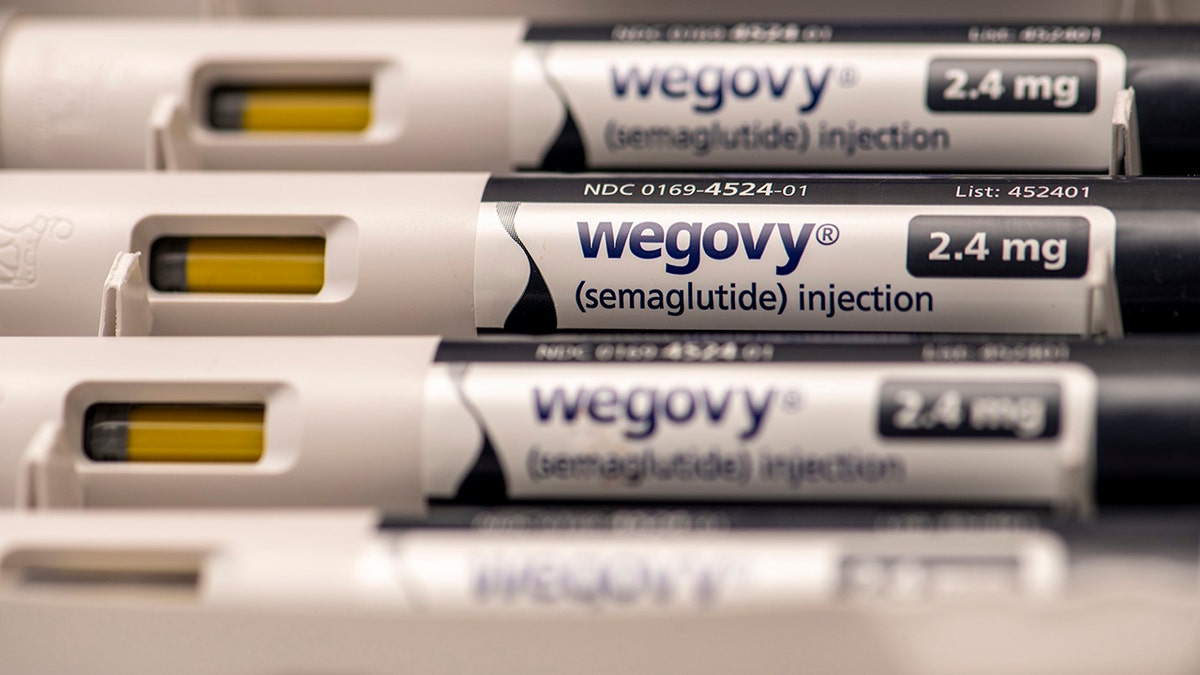
The latest weight loss craze could also help people control their drinking.
Semaglutide treatments such as Ozempic and Wegovy have been shown to reduce the symptoms of alcohol use disorder (AUD), according to a study published in The Journal of Clinical Psychiatry on Nov. 27.
The collaborative study from The University of Oklahoma (OU) and Oklahoma State University (OSU) found a “significant and noteworthy decrease” in the Alcohol Use Disorders Identification Test (AUDIT) scores of six patients who were receiving semaglutide treatment for weight loss.
Lead study author Dr. Jesse Richards, director of obesity medicine and assistant professor of medicine at the OU-TU School of Community Medicine, said the study was inspired by his conversation with Dr. Kyle Simmons, professor of pharmacology and physiology at the OSU Center for Health Sciences.
“I had been hearing from a significant number of patients that their alcohol intake was spontaneously decreasing while [they were] on the medication,” Richards told Fox News Digital.

Semaglutide treatments such as Ozempic and Wegovy have been shown to reduce symptoms of alcohol use disorder, according to a new study published in The Journal of Clinical Psychiatry. (iStock; SEBASTIEN BOZON/AFP via Getty Images)
As a bariatric surgery clinic employee, Richards noted that it’s standard to screen patients for alcohol use.
OZEMPIC-WEGOVY PILL MAY BE ON THE WAY: TRIAL SHOWS PROMISING RESULTS FOR NEW WEIGHT LOSS TABLET
At the clinic, a number of patients tested positive for alcohol consumption, sometimes in concerning amounts.
Later, while on semaglutide medication, they reported reduced alcohol intake.

Dr. Jesse Richards is director of obesity medicine at OU Health at the Hardesty Center for Clinical Research and Neuroscience in Tulsa, Oklahoma. “I had been hearing from a significant number of patients that their alcohol intake was spontaneously decreasing while on the medication,” he told Fox News Digital. (OU Health)
One of Richards’ patients — who previously drank large amounts of alcohol — shared a new inability to drink more than two cans of beer now because it “just doesn’t sound good.”
This response piqued Richards’ interest in learning more about patients’ aversion to alcohol, which directly correlated to his research.
Only about 2% of people with alcohol use disorder are on an approved treatment.
Research has shown that this effect is “mediated through adjustments in the reward pathway in the brain,” he said.
“The GLP-1s are actually modifying dopamine, decreasing the craving and decreasing the motivation to acquire things in that compulsive intake category.”

“Reducing liquid sugar and liquid caloric intake is strongly associated with effective weight loss,” an expert told Fox News Digital. (iStock)
The most surprising takeaway from the study, Richards said, was that the same significant treatment response was seen even at very low doses.
“We found that even patients on the lowest dose of semaglutide — a quarter milligram — had a quite significant and relatively … quick onset reduction in alcohol intake,” he said.
Of the six patients studied, all but one were on low doses — from a quarter to a half milligram.
OZEMPIC, WEGOVY MAY BE LINKED TO STOMACH PARALYSIS AND OTHER DIGESTIVE ISSUES IN LARGE-SCALE STUDY
“And that’s very encouraging because we know that the lower doses of these medications are tolerated much better,” said Richards.
While the results seem promising, the doctor said he does not recommend that patients use semaglutide treatments for alcohol use disorder at this time, due to supply and safety issues.

Wegovy is an injectable prescription weight loss medicine that has helped people address obesity. (Michael Siluk/UCG/Universal Images Group via Getty Images)
“If patients have [obesity and diabetes] indications for the medication and they also struggle with alcohol intake … having them on this treatment may potentially be beneficial,” Richards said.
“But because there has been a global medication shortage, and because we don’t have prospective trials and don’t know what the specific safety is versus the well-established safety data in obesity and diabetes, [I] would not recommend it just for patients who have AUD.”
OZEMPIC, WEGOVY AND PREGNANCY RISK: WHAT YOU NEED TO KNOW ABOUT THE ISSUE
There are three FDA-approved drugs available for alcoholic use disorder that are currently underused, the doctor noted.
“Unfortunately, at this point, only about 2% of people with AUD are on an approved treatment,” he said.

GLP-1 treatments do not have a warning against consuming alcohol while taking the drugs, an expert pointed out. (iStock)
Given that five million people in the U.S. are currently taking semaglutide medications, if it is proven that those drugs have a significant effect on alcohol use disorder, “by default, they are going to become the most widely used drug to improve these symptoms — just by virtue of the fact that so many people are on them for diabetes or obesity,” Richards noted.
OZEMPIC, WEGOVY AND ALL THOSE CRAZY, VIVID DREAMS: IS THERE A CONNECTION?
He confirmed that additional research is underway with two ongoing trials.
“Since we were able to show clinically meaningful reductions in alcohol intake and AUD symptomatology in a real-world setting, that bodes very well for these types of medications,” he said.
Looking ahead, Richard said there is a need for higher-quality evidence of the medication’s impact on AUD compared to placebo drugs or environmental factors.

Health care providers wrote more than nine million prescriptions for Ozempic and similar drugs in the last quarter of 2022, data shows. (SEBASTIEN BOZON/AFP via Getty Images)
Even though it’s unclear whether GLP-1 producers will market the medication to AUD patients in the future, Richards said this could become an “established medical practice once the safety and efficacy has been determined.”
For patients who struggle with AUD, Richards recommended they talk to their health care providers about available treatment.
CLICK HERE TO SIGN UP FOR OUR HEALTH NEWSLETTER
He also alerted patients that if they experience a reduced appetite and usually consume “a bunch of calories” in alcohol, it may be necessary to look into a more balanced diet.
Avantika Waring, 9amHealth’s chief medical officer and a trained physician and endocrinologist in San Francisco, applauded the OU and OSU study findings for further supporting what clinicians “are already seeing in practice,” she told Fox News Digital.
“People struggling with alcohol use disorder should consult with their physicians before starting GLP-1 medications.”
“GLP-1 medications have a lot of effects that we are still learning about, and the ability to decrease cravings and the reward signals related to alcohol use are just some of the benefits,” she said.
“It’s an important starting point for further clinical trials,” she added.
Waring also warned that GLP-1 medications should not be used to treat AUD specifically, as they can cause side effects such as nausea and changes in appetite.

Patients’ aversion to alcohol is part of balancing the “side effects with the benefit” of the medication, said the lead study author. (iStock)
“People struggling with alcohol use disorder should consult with their physicians before starting GLP-1 medications to make sure that they can stay hydrated and safe on therapy,” she said.
CLICK HERE TO GET THE FOX NEWS APP
Waring noted that if ongoing clinical trials find semaglutide treatments to be effective for AUD, the medical community will “have another tool to help people living with alcohol addiction and we’ll see expanded use of these already popular drugs.”
Fox News Digital reached out to Novo Nordisk for comment on the potential link between semaglutide medications and alcohol use disorder.
For more Health articles, visit www.foxnews.com/health.